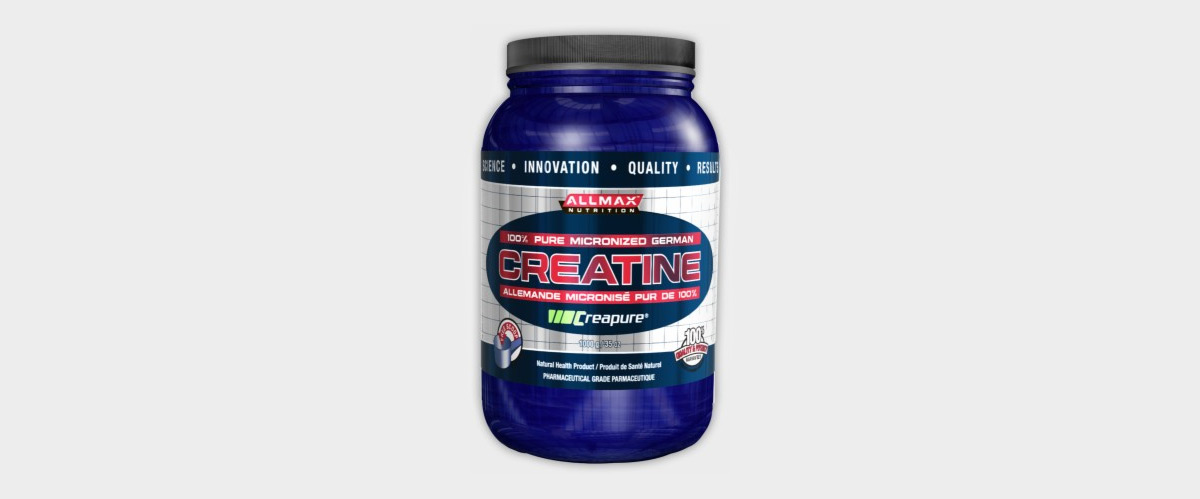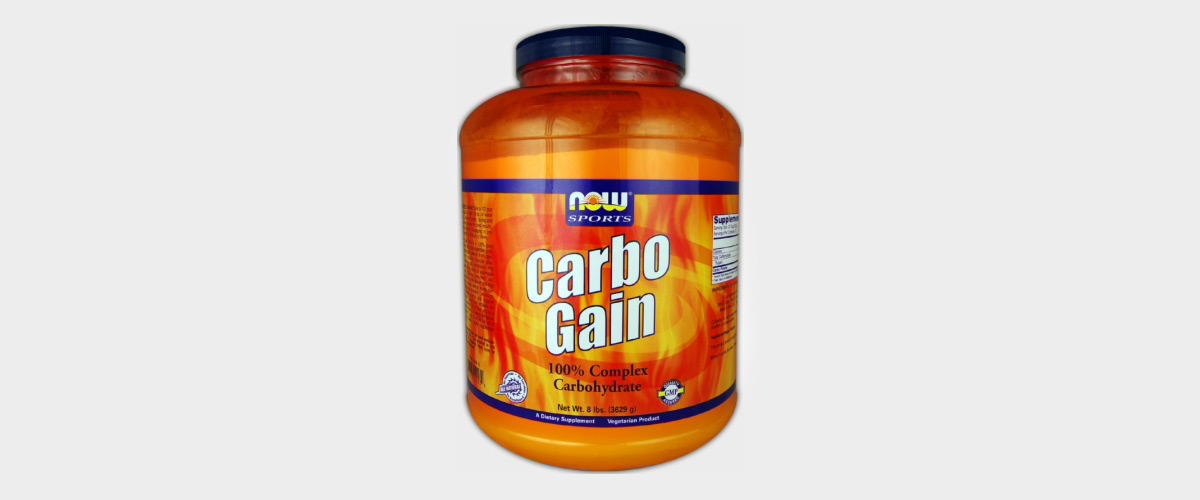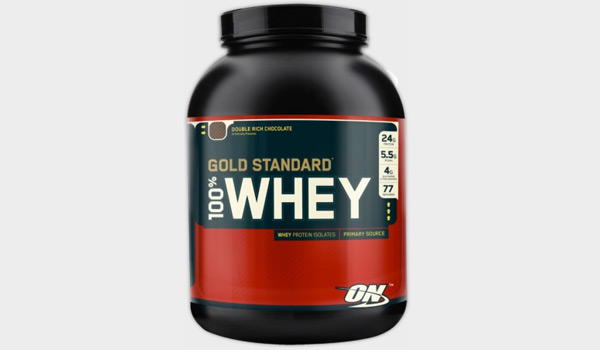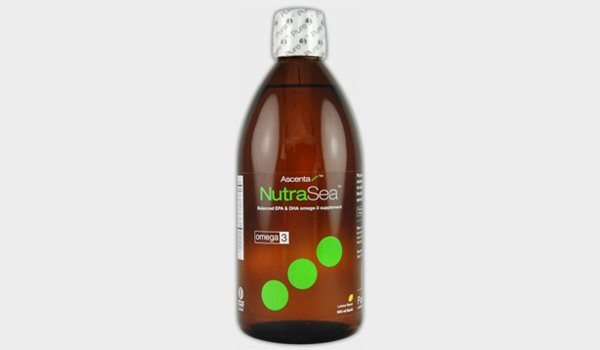We’ve gotten a lot of questions about supplements for ectomorphs—which supplements are best for us, what brands we recommend, whether they’re healthy, and whether we need them at all. The answer to that last question is simple: you don’t need them. You can build muscle just fine with or without them. In fact, until you know how to build muscle without them you really shouldn’t be buying them at all. Once you’ve got the fundamentals down though, adding in some key supplements can drastically improve your results, make your life a helluva lot easier, improve your health and even save you some money… if you’re smart about it.
These probably aren’t the supplements you expect though—you’re going to find one them a little weird—and you might not be taking them for the reasons you expect either. Us ectomorphs need to supplement a little differently. So we’ve put together a protocol. We aren’t just recommending supplements, we’re recommending a specific combination of supplements taken at particular times that work incredibly well for ectomorphs looking to build muscle and stay lean.
(This is a research based article, and there’s a lot of research being done into muscle-building nutrition and muscle-building supplements. We’ll been updating this post every month with all the relevant new studies that come out.)
Ectomorphs need to approach supplements differently
Most supplements are targeted at the average guy. The average guy is overweight and looking to get leaner. Maaaybe he’s also looking to pack on muscle while he’s at it. This is the world that the supplement companies are presented with and, understandably, they respond by making supplements that are targeted at these guys. Us ectomorphs looking to build muscle mass thus need something a little different.
Look at BCAAs, one of the most common workout supplements available these days. They’re an ingredient in pretty much every workout supplement out there … yet us ectomorphs don’t need them at all.
See BCAAs are found in protein, and different protein sources have different amounts of them. As naturally skinny guys we’re much better off eating their calorie-rich cousin—whey protein. A classic 30g scoop of whey protein actually has about 6g of BCAAs in it, which is more than a typical 5g scoop of BCAAs has. (Obviously.) Besides, the other nutrients present in whey boost muscle protein synthesis post-workout far higher than BCAAs alone, making whey far superior for us ectomorphs. (study) But if you were the average guy, calorie-light BCAA supplements become a valid option.
This supplement protocol has one type of guy in mind: the naturally skinny ectomorph who’s looking to build muscle, i.e., gain weight. This is about leveraging ectomorph appetite tricks, insulin sensitivity and muscle-building fundamentals in order to allow us to consume enough calories to build muscle.
Do us ectomorphs need supplements?
Hell no. They aren’t magic, and they won’t build muscles out of thin air. Until you know what you’re doing, all the money you spend on supplements will be wasted. You won’t be getting anything out of them. In fact, once you know what you’re doing, you’ll probably realize that you don’t even need supplements, because your results will be so good without them.
- Crappy program + supplements = no results, frustration, wasted money and giving up
- Mediocre program + supplements = slow and unpredictable results, if any
- Great program + no supplements = great, steady, reliable results. You’ll soon have a burly bod’ and bear-like strength.
- Great program + intelligent supplements = “holy $%& man! Where did all those muscles come from!”
A good program (like ours) that includes both training and nutrition is the #1 place that you want to invest. (Um, we’re also admittedly a little biased… but it’s still true.) The benefits of investing in a solid plan last for life. You won’t eat your way through $200 of information and then have to go buy more. You can invest once, develop a solid training and nutritional foundation, and collect your results over the coming weeks, months and years.
The next crucial ingredient for success is actually doing the program. These two things will get you further than any combination of supplements—guaranteed. No amount of supplements make up for a not getting your ass off the couch. (That includes the people who are stuck in the “research” phase, waiting to know everything before starting anything.)
So, this supplement plan assumes that you’re an ectomorph with a weightlifting and nutrition plan. I’ll even take this one step further—this supplement list is for guys who are already having success building muscle. If you’re still working out the weightlifting and nutrition kinks save this stuff for later.
With weightlifting and nutrition handled though, these supplements will help you transform yourself much faster. This protocol is backed up by research, this is what we do personally, and this is what we recommend to our members.
Albert’s a good example of someone kicking ass with a busy schedule (young doctor with 14+ hour shifts), finding a way to eat enough good food anyway, training as consistently as he can, and supplementing intelligently as the cherry on the cake. The supplements aren’t the key factor in his gains, but they probably helped.
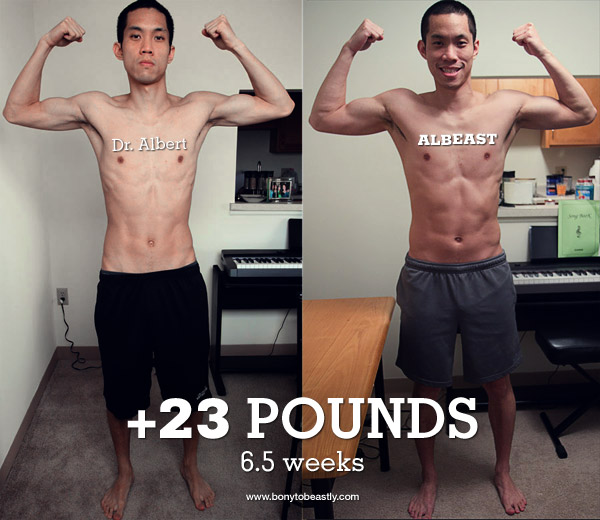
Why this supplement protocol kicks serious bony ass
You can do fantastically well without any supplements—many of our guys go that route and do great. This protocol can have a significant impact while making things a little easier though. The reason for that is simple: this protocol isn’t just a bunch of vitamins and fancy patent protected formulas—it contains a hell of a lot of calories, and calories are exactly what us skinny guys need. Consuming the right kind of calories during the right kind of circumstances is a pretty big deal when it comes to building muscle. In this study guys who added whey protein and maltodextrin into their diet gained an extra 7.5 pounds of muscle over the course of 8 weeks while simultaneously losing fat. An extra pound of muscle each week? Not bad. Not bad at all.
Now I want to be clear here. There’s a lot of marketing and hype about workout nutrition. You know—that magical anabolic post-workout window. That’s way overhyped: nothing trumps overall calorie and protein intake when it comes to building muscle. Whether you take this drink first thing in the morning, while training or right before bed it will still help you build muscle. That’s because the caloric, carb and protein content of the workout drink supersedes the timing of it. (study, study, study)
We do recommend taking it while training though. Why? Well most studies out there would agree that as far as nutrient timing goes, this is where most of the opportunity lies, especially if you’ve already got some lifting experience. (study) Is it the magical window that most supplement companies claim it is? No, but it’s still the best time to be taking this stuff. Since insulin sensitivity in your muscle cells will be heightened during and right after training, this gives you the absolute best shot at increasing the rate that you build muscle leanly, as it will invest the nutrients in your muscle mass instead of shuttling them off into your fat stores.
The fact that you’ll be consuming these supplements in liquid form makes this combo even more significant for us ectomorphs. Since liquid calories aren’t very filling, they up-regulate caloric consumption. (study, study) Downing 1000+ liquid calories while weightlifting is a total breeze, and it makes hitting your daily calorie goals much more achievable. Okay so maybe downing the workout shake isn’t a total breeze—it’s a pretty gruesome drink—but it works!
For us naturally skinny guys this is the Buckley’s of workout nutrition.
We’re making pretty large claims and using at a pretty crazy study to base it on, so we wanted to double check our facts. Who do you go to when it comes to analyzing muscle-building nutrition research? Alan Aragon, obviously. He’s arguably the most brilliant researcher out there when it comes to muscle-building nutrition and supplementation. (I’ve already referenced two of his studies in this article alone.) He’s one of the most unbiased and evidence-based researchers out there, he’s rocking a masters in nutrition, and he handles the nutrition of a pretty fearsome roster of athletes: Olympians, the Lakers, bodybuilders, fitness models, etc. More relevantly still, he has the most respected research review in the fitness industry.
So I sent him the study and asked him his thoughts on our supplement protocol. He was a little dubious and a lot intrigued, so he wanted to take the time to fully review it. He did. He posted a review and breakdown of the study above in the December 2012 edition of his monthly research review. It checked out. The study was properly conducted and the trainees really did gain tons of muscle while losing a bit of fat. Let me add, as he did, that gains this incredibly rapid are only possible in relatively untrained dudes. Perfectly relevant for guys who are still relatively skinny, but if you’ve already built a ton of muscle, while it will still work, you’ll obviously progress a little slower.
So what did Alan think about downing tons of liquid calories to finally overcome our ectomorph appetites (or lack thereof) and build tons of muscle?
“I highly agree with you that the liquid meal can boil down to an appetite & compliance thing rather than a timing thing. No objections there at all. There are plenty of athletes whose energy demands benefit from liquid/refined nutrition, and they don’t necessarily fit the endurance athlete mold.” – Alan Aragon
Perfect.
Plus this stuff is cheap. It’s cheap compared with other supplements and even cheap compared with regular boring old food. I mean if you want to build muscle your calories need to come from somewhere. Whey protein is a very affordable type of high efficiency protein (compared with meat, eggs and dairy, which are also high efficiency protein sources). Carbohydrates are usually pretty cheap, but the maltodextrin that we’re recommending is extremely cheap. Best of all, these simple ingredients we’re recommending don’t just undercut the price of the fanciest and most complicated supplements out there—they perform just as well or better. If there were fancier supplements out there that worked better than these we’d tell you about them. But there aren’t.
As far as brands go we’ve done our best to hook you up with the most reliable ones offering the best products for the best prices. Full transparency: these are affiliate links to Amazon.com, so you’ll earn us around 4% commission if you buy them via the links—which would be fantastic. This are the supplements we use. This is what we tell our members to use.
I’m going to explain the four different muscle-building powerhouse supplements that we recommend. These are hands down the most effective and most thoroughly researched supplements for ectomorphs trying to build lean muscle mass. I know this stuff can often be hard to piece together, so at the end of the article I’ll outline the specific protocol we’ve designed so that you know exactly how and when to take all this stuff.
Oh, and, of course, consult your doctor before beginning any supplement regime that you find on the internet ![]()
CREATINE
Creatine is the most powerful legal muscle-building supplement. Ever. That’s not just our opinion, the International Society of Sports Nutrition agrees. (study) It’s also 100% safe, with no reported disasters after decades of rigorous testing. (study, study, study) The only reported negative side effect is that sometimes some people get stomach discomfort after consuming it, and that’s just due to taking too much of it at once and/or not drinking enough water. (Creatine will pull fluid into your muscles, so drink a little bit of extra water.)
More muscle. Perhaps more interestingly, studies unanimously show that it builds muscle and improves strength. (study, study, study, study) Secretly mixing creatine into a trainee’s coffee in the morning radically improves his muscle gains? Pretty fearsome.
Check out this study showing that following a great training program for 8 weeks with post-workout sugar produced 6 pounds of muscle growth, and 9 pounds of muscle growth with post-workout sugar + creatine. Not bad. That’s a 50% improvement in muscle mass due to creatine. (And the post-workout sugar? That’s up next.)
Less fat. You’ll also gain less fat. This is because creatine is a potent supplement for improving insulin sensitivity in your muscle cells—even in those with decent insulin sensitivity to begin with (like most of us skinny guys.) It does this by pulling glucose into your muscles instead of leaving it hanging around to be stored as fat.
How? Creatine helps your body replenish ATP, which increases anaerobic power—the type of power you need to haul heavy-ass weights. Being able to lift more weight increases the mechanical tension you’re placing on your muscles and on your body, meaning that you’ll have pretty fantastic muscle stimulation and a greater acute hormonal response to your training. The real benefit comes from the increased skeletal muscle synthesis and glycogen storage that comes along with having high concentrations of creatine in your system. This means that not only will you build more muscle via your training, you’ll also get more muscle out of the food that you’re eating.
Some guys joke that creatine supports the entire muscle-building supplement industry, and that isn’t too far from the truth. When you start reading supplement ingredients you’ll be amazed at how many of them have a few grams of creatine tucked away into every serving. How many supplements out there would still produce results if you yanked the creatine out of them? Not many. Not many at all.
Think of most supplements like mix drinks. There are a lot of cool colours, flavours and ingredients, but the whole point of them is the alcohol. Creatine is the alcohol. We aren’t really fans of mix drinks, so we’re recommending that you skip all the fancy proprietary blends and just head straight to the good stuff.
Now, as with virtually everything in the supplement world, there are a lot of extremely expensive and fancy variations out there. You don’t need them. Simple creatine monohydrate is still the king of creatine. You’ll save a ton of money and get all the benefits. You also don’t need to get fancy with how you take it, as you may have heard. Mix it into your tea, coffee, water—whatever.
*Creatine is synthesized in a lab so it’s safe for vegetarians and vegans too.
**If you’re a vegan I would say it’s nearly mandatory, as you’ll be more likely to have a deficiency in creatine, which can cause some longterm health problems and reduce your cognitive function. (study)
***Beta-alanine is a similar supplement that can be taken in addition to creatine. It’s newer and there’s limited research available, but it’s very promising so far. Not as promising as creatine, but still promising nonetheless (study, study).
Click here to check out the creatine brand we recommend
MALTODEXTRIN
Most fancy recovery drinks are packed full of dextrose or maltodextrin and cost an enormously scary amount of money. This particular tub is scary because it’s so cheap. At 24 cents per serving it’s almost too cheap to believe. You’d think you were buying a tub of sugar… and you’d be correct.
Sugar is a little confusing, since there are a few different common types. The carbohydrates that you eat are all converted into glucose, at which point your body can store them for use as a fuel source. If you consume them properly you’ll keep all that fuel stored in your liver and muscles (glycogen), instead of converting them into fatty acids (flabs).
One option is dextrose. This particular type of sugar, glucose derived from corn, is one of the cheapest foods on the planet, digests extremely quickly, and is a dirt cheap source of muscle-building carbs. Taken while working out it’s a pretty effective supplement for us ectomorphs trying to build mass. It’s a valid option, but it’s hard to find and hard to stomach (because it’s so damn sweet).
The supplement that we’re recommending is maltodextrin – a glucose polymer. It’s made up of many glucose units bound together. It’s a starch, so instead of tasting like sugar it tastes more similar to flour. It digests a teensy bit slower (probably a good thing), and we’ve found that our members much prefer the taste. It still has no fibre in it, so it’s easy on the appetite and will clear out of our stomachs relatively quickly, leaving us able to comfortably eat more later. (A big deal for us skinny dudes.)
That study in the creatine section is said to have produced “some of the highest non-steroid increases in lean mass” ever seen—badass. While the study was technically studying creatine, the carbohydrates they were giving them were a huge factor in producing muscle growth, which is why even the group or participants just supplementing with sugar did so well. (The training program itself was also a factor. It was a very well designed muscle-building program, which is surprisingly rare for studies.)
“But Shane, won’t consuming all these refined carbohydrates make me fat?!”
No. Perhaps surprisingly, this is actually a pretty good way to minimize your chances of getting fat. This has to do with the heightened insulin sensitivity in your muscle cells that accompanies weightlifting, the synergistic anabolic effect that the protein creates (whey protein creates a very strong insulin response), the fact that we’re strategically creating a calorie surplus and spiking insulin, and the fact that carbs aren’t very easily converted into fatty acids and thus aren’t very easily stored as fat.
To quote the brilliant nutrition researcher and fat loss expert James Krieger, who has a master’s degree in nutrition and has published of some of the best muscle-building nutrition studies out there—”Post-workout carbohydrates shouldn’t cause you any trouble in the long-run as you are extremely insulin sensitive after training. As long as you maintain a good diet, good activity, keep your body fat low, and your fasting blood sugar remains normal, then you should be fine.”
Click here to check out the maltodextrin brand we recommend
We picked this brand because it’s so pure and bare bones. It has one and only one ingredient (maltodextrin). It’s also really damn cheap.
WHEY PROTEIN
Whey protein powder is a cheap and convenient way of getting in your daily protein, but there’s really nothing special about it. It’s the quickly digested protein found in dairy products. It’s processed, but unlike junk food, the processing is fairly minimal. Nutritionally you can pretty much consider it a whole food instead of a supplement. It even has some vitamins in it.
Essentially it’s more or less equivalent to a chicken breast. A chicken breast would taste pretty funky blended up into a fruit smoothie though, so whey is sometimes best ![]()
Muscle can only by synthesized out of amino acids (found in protein) so a shortage of those can easily slow down your efforts. Since most of us ectomorphic guys aren’t consuming enough protein to optimally build muscle, adding whey protein into your diet really will most guys build more muscle mass. (study, study)
Whey is especially effective when taken surrounding training. (study, study) It digests quickly and contains a pretty stellar blend of branched chain amino acids (BCAAs). If you really want to kick things up a notch, it works even better at stimulating muscle growth when combined with a carb source like maltodextrin. (study) The whey protein + maltodextrin combo is about as powerful as they come—it’s no secret—and almost every single workout recovery drink and commercial weight gainer will combine these two ingredients.
Click here to check out the whey protein brand we recommend
It’s a classic whey isolate protein powder from a reputable company, and the whey protein itself is very high quality. An interesting (indie) study recently looked into many of the popular brands of whey protein. The study got a lot of attention because of how controversial it was – a lot of popular brands were making false claims. This brand (Optimum Nutrition) wasn’t, and was thus ranked the highest.
*If you want a non-workout protein powder to take along with meals use this casein protein, but keep in mind it presents no advantage over real food. It’s handy and affordable though if you’re not much one for cooking.
**If you don’t handle whey protein well (allergies) or you’re avoiding it for moral reasons (e.g. you’re a vegan) then you can go with rice+pea protein, or another blend of plant-based protein sources. (The amino acid profile in individual plant-based sources isn’t complete, so blends are ideal.) SunWarrior is pretty fantastic both from a quality standpoint and from a taste standpoint. I use it sometimes and I’m not even a vegan.
FISH OIL & VITAMIN D
My personal favourite. It potentially directs more of your calories towards muscles and less towards fat. The research here is still young—just a handful of studies—although it’s rather promising. (study, study, study, study) Fish oil seems to improve carbohydrate storage, protein storage, metabolic rate, and, most importantly, muscle protein synthesis (MPS).
What effect should this have? You’ll gain more muscle and less fat.
The omega-3s in fish oil (EPA and DHA) do this by making the plasma membranes in your cells healthier. Modern diets are deficient in omega 3s, so our bodies are a little off-kilter by default. This will help bring you back to the way you should be already. (study) The side effects include better cardiovascular health, a reduced risk of developing cancers and a reduced risk of diabetes. Many people report feeling “better” after spending a few weeks supplementing with fish oil. This is likely because it can help reduce anxiety, improve your mood, increase motivation, and reduce inflammation and soreness.
Vitamin D is another powerhouse supplement when it comes to muscle-building, staying lean and improving your overall health. Fixing a vitamin D deficiency is more effective at boosting testosterone than testosterone boosters, it significantly improves insulin sensitivity, it’s great for your cardiovascular health, it can improve your bone density, boost your mood, and perhaps even help prevent certain types of cancer. (study, study, study, study) A recent study (January 2014) found that supplementing with vitamin D increased strength even in guys who weren’t deficient. The researchers concluded that vitamin D supplementation was “an attractive complementary approach to enhance the recovery of skeletal muscle strength following intense exercise.”
Why do we bundle it with fish oil? Vitamin D is fat soluble, meaning that it needs to be taken alongside fats in order to be properly absorbed. Having it in fish oil makes taking vitamin D very easy and effective.
We’ve linked out to the Nutrasea with Vitamin D. It’s got the EPA, DHA and vitamin D3 content that dreams are made of.
Click here to check out the fish oil brand we recommend
*As a skinny guy you want to rack up as much as 2g EPA and 1.5g DHA every day. That’s a tough challenge to do with dinky fish oil capsules, so we prefer liquid fish oil. (The purity is higher, too.)
**Fish get their DHA from algae, so if you’re a vegan … simply supplement with algae to get your DHA in.
THE PROTOCOL:
Training drink: 30-90 grams Whey + 60-180 grams maltodextrin + 5 grams creatine
A typical guy would want 30g whey, 60g maltodextrin and 5g creatine to create a good hormonal situation (insulin primarily) and optimal recovery from his workouts. That would maximally stimulate muscle protein synthesis and take care of the nutrient timing benefits. (study) You’d want to take this within 1-2 hours of training for optimal results. (study, study) This is similar to what you’d find in a pre-made workout drink or “recovery” formula. Some of them, like SuperPump, have just BCAAs + creatine instead, because they don’t want the calories from the whey and the maltodextrin. This is good—most guys eat too many calories. (That’s why most guys are chubby.)
We aren’t typical guys who need to be avoiding excess calories though. We also aren’t trying to just “recover from our workouts”. We’re naturally skinny ectomorphs who are trying to add tons of lean muscle mass to our bony ‘bods. We want record-breaking results here that people gasp and whisper about, not three years of arduous work for a few pounds of muscle. (Although that would still be a worthy accomplishment, don’t get me wrong.) We want you guys being (falsely) accused of rampant steroid abuse and top secret military muscle-building experiments.
As, say, a mid-sized 150 pound skinny male you’d potentially want two or three times that amount of protein and maltodextrin to build the maximum amount of muscle. If you’re skinny-fat, perhaps take a single or double dose. If you’re skinny skinny—a ripped ectomorph—then maybe up to a triple dose. (And scale back the dosage as you grow.) No need to double or triple the creatine dosage – just the protein and maltodextrin.
I’m about as stereotypical an ectomorphic as they come, and I personally mix up 90g of protein, 180g of carbs, and 5g of creatine when I’m really trying to gain weight. (When I’m coasting I eat fewer calories and try to get more of them from whole foods. A workout drink this large isn’t something you do forever, this is something you do for a few months to build tons of muscle.)
I start sipping on it as I warm up, and I chug whatever’s left when I finish my workout. That bad boy racks up 1080 calories of exactly the kind of nutrition we want when training. It tastes pretty crappy (think liquid cake), but nothing will guarantee muscle growth like consuming tons of extremely effective calories at the most crucial muscle-building moment. For most of us skinny guys, who often have trouble consuming enough calories, this is the magic formula we’ve been missing.
Daily Creatine: Take 3-5 grams every day. Sprinkle it on your cereal, put it in your coffee/tea, mix it with water—whatever you like. On workout days you don’t need to worry about it, since it will be in your workout drink.
It will take a few weeks for your body to reach maximum levels from steadily taking it, so If you want to load up on creatine quickly just take three or four 3-5g doses for the first week (if you take more you’ll just pee it out). Research is unclear about whether there’s an advantage to loading up quickly vs steadily—both ways work wonders. I personally load up steadily.
Daily Fish oil & Vitamin D: 2g EPA, 1.5g DHA daily, and 2000-4000IU vitamin D.
If you go with NutraSea + Vitamin D this works out to one tablespoon of fish oil every day. Pretty simple.
Taking vitamin D first thing in the morning works pretty well. That’s when the sun comes up and you begin synthesizing it naturally (if you were living beside a tropical beach). Taking it later at night could potentially interfere with your sleeping patterns.
And there you have it!
If you use our links to buy the supplements, thank you! We appreciate it. If you don’t, that’s cool too. The supplements will work just as well wherever you find them. Here they are all in a row:
And once again, if you aren’t already getting results don’t spend any money on supplements. They aren’t the magic solution—you need a better plan. Think of supplements like a multiplier. If you build zero pounds of muscle and increase your results by 50% … you’ve still built zero pounds of muscle. If you’re gaining a pound of muscle every week and you add in that same 50% increase though, you’re now gaining 1.5 pounds of muscle every week. As an ectomorph who’s tired of being skinny that may be worth your hard earned money. Or it might not be, because, see, either way you’ll end up a beast!
Questions? Ask ‘em in the comments!
